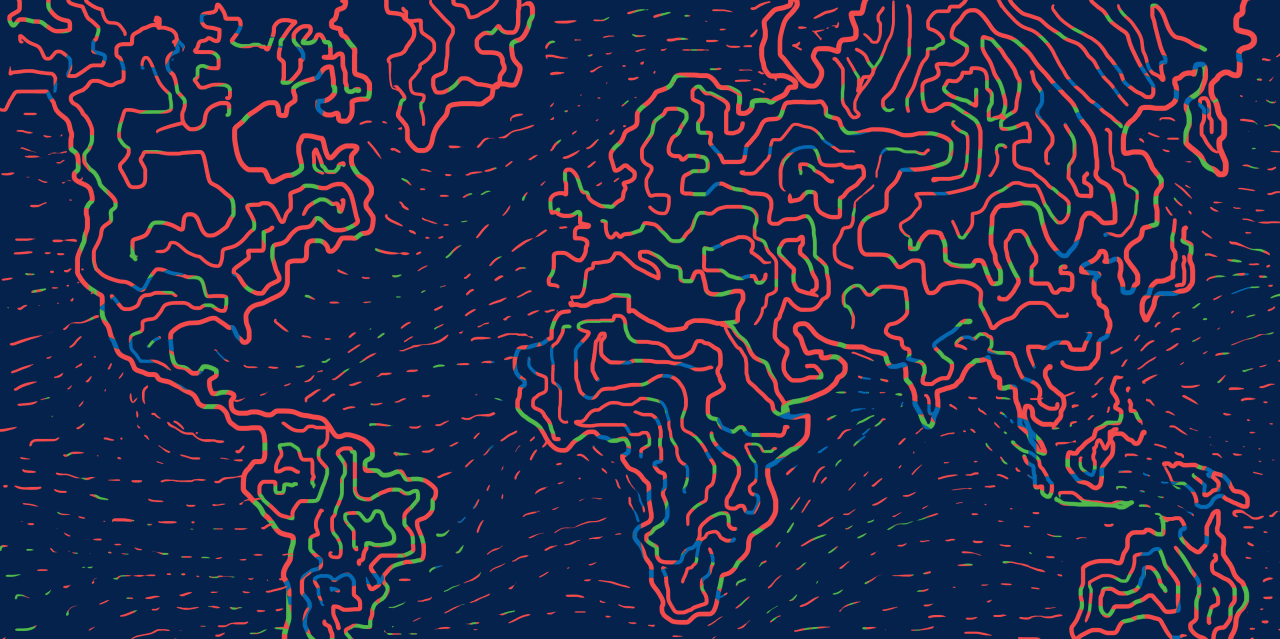
My partners and I often remark that geography is artificial in our world. That’s partially because we’ve made it so in our investing practice. With three founding partners of Elevar hailing from India, Mexico and the Philippines respectively, it was natural for us to travel to each other’s parts of the world and visit with low income communities there, urban and rural. When we did so, the similarities between the communities we saw were more evident than the differences. Sandeep once flew almost 36 hours between Bangalore to the south-eastern, rural highlands of Peru, only to remark that felt like he had landed in northern India – with small shops and Bajaj auto-rickshaws present in small towns. When walking the crowded and dusty streets of Mexico City, I often feel like I am in Manila. When Johanna talks to farmers in India about their hardships and needs, she hears the same complaints that she hears from Latin American farmers.
When we talk about geography being artificial, what we mean is that the core needs of the low income households we meet in cities and villages throughout Asia and Latin America are very similar. Top of mind for families in all the markets we serve is achieving greater financial stability and access to financial services, ensuring the health and well being of their families through access to quality healthcare, improving their homes, and working to improve educational and livelihood outcomes for themselves and their children. No matter where we go in our markets and who we talk to, these feature as key needs. This is also why we did not dive into considering investments into other areas of need where geography does matter – like access to energy or access to water. We stuck with those sectors that transcended boundaries.
Geography is not artificial when it comes to particulars of political structures and regulations, local business networks and legal and capital market frameworks, cultural norms. What enables us to execute successfully at Elevar is a keen bridging of these two realities: an understanding of the universality of needs among low income communities and therefore the business models that may serve to satisfy these needs, PLUS an ability to execute locally given local constraints because my partners and colleagues and I grew up in and built our careers in the markets of focus for Elevar. Our ability to bridge these two realities allows us to determine why a business model addressing a particular need (e.g. payments infrastructure) may not work in India given regulatory and competitive dynamics, but may be very successful in Peru where the need for better payment services to complete financial transactions may be possible because the regulatory and competitive dynamic is different from India. In both situations, the needs of the community are the same. That said, some of the local characteristics (regulatory, interaction between banks and mobile telcos, etc.) may create conditions for success in one and for risk in the other.
Another way in which our belief in transcending geography is evident is in our determination to transport knowledge from one geography to another. We cut our teeth in microfinance in India where most approaches centred on group lending methodologies and social collateral. In Latin America, we very early on saw individual lending methodologies as the preferred form of provision of credit. Hence we were able to move quickly in India to support individual lending methodologies when those approaches began to emerge, not only in microfinance, but also in micro/small/medium enterprise lending and low-income housing finance. Though the market in India was unfamiliar with credit methodologies and underwriting for informal individuals, we were comfortable with individual lending approaches because we had seen it succeed in Latin America.
“Geography is real when it comes to particulars of political structures and regulations, local business networks and legal and capital market frameworks, cultural norms. What enables us to execute successfully is understanding of the universality of needs among low income communities and therefore the business models that may serve to satisfy these needs, plus the ability to execute locally given local constraints.”
Maya Chorengel
Ultimately, we believe that low income communities and markets around the world are similar and that business models are globally replicable. The degree of risk of execution and implementation may vary based on local dynamics (e.g. entrepreneur availability, regulatory framework, competitive dynamics, degree of maturity of capital markets), but needs are the same and scale potential exists. The key is to exercise judgment based on local knowledge in implementation, but our hope is that our companies can serve as role models for what is possible, not only in their home markets, but globally.